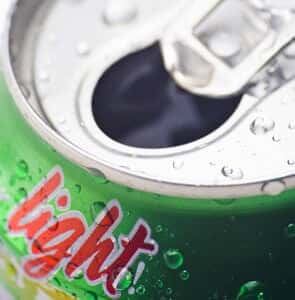
Remember when we were told that butter was bad and margarine was marvelous? Ooops! Turned out that the trans fats in margarine actually increased the risk for heart disease.
Diet drinks were supposed to help people lose weight and presumably improve overall health. Now, a study analyzing data from 60,000 participants from the Women’s Health Initiative (WHI) suggests that diet soft drinks may also increase the risk for heart attacks, strokes and deaths from cardiovascular “events.”
We Americans love to eat our cake and have it too. That is why we are so susceptible to the seductive messages from food manufacturers and health professionals. First, they scare us by saying that something is bad. For decades, saturated fat was the enemy, guaranteed to clog coronary arteries. So, we embraced cholesterol-free margarine. The promise was that we could put it on bread, baked potatoes and pancakes and not worry about our heart health. Turns out that was a big fat lie!
Ditto for diet drinks. We were told that we could have all the sweetness we crave without the sugar and not gain weight. There are serious questions about that premise, but the real issue is whether such beverages are hazardous to our health rather than helpful. Diet soft drinks could be another trans fat story in the making.
Here is the straight and skinny on the new research. The results of this observational study were reported at the American College of Cardiology meetings in Washington, D.C. The title of the presentation was: “Diet drink consumption and the risk of cardiovascular events: A report from the Women’s Health Initiative.”
Women who regularly consumed at least two diet drinks daily were about 30% more likely to have a heart attack than those women who rarely or never consumed diet pop. The greater the diet drink intake, the more likely the investigators were to detect nasty outcomes such as heart attacks, strokes and death from cardiovascular disease. This was a long-term study, with follow-up averaging nine years.
It was not a gold-standard study, however. It did not involve randomized, double-blind, placebo-controlled research. The investigators relied on answers to a questionnaire. That is why it is called observational. That means the authors cannot state unequivocally that diet pop “causes” heart attacks and deaths. All they can say is that there is an “association” between diet drinks and negative cardiac outcomes.
But wait! This is not the first time diet soft drinks have been linked to heart attacks and strokes. A study published in the Journal of General Internal Medicine (September, 2012) also noted an increased risk of heart attack and strokes. In this research 2,564 New Yorkers were tracked for a decade. Daily consumption of diet soda was linked to a 44% increased risk of heart attack or stroke. They were also more likely to die from cardiovascular causes.
The counter-argument is often that people who drink diet soft drinks might be unhealthier than people who shun diet drinks. Maybe, but as these observational data accumulate, Americans may wish to reconsider their love affair with artificial sweeteners.
If you would like to hear an in-depth discussion of aspartame and cancer risks, we encourage you to take a few minutes to listen to our free interview with Dr. Morando Soffritti, Scientific Director of the Ramazzini Institute in Bologna, Italy. Here is a link to The People’s Pharmacy Radio Show #880 titled “How Safe Are Sweeteners?”
Share your own thoughts below. Do you love diet drinks? Do you feel they have made a difference in your ability to control your weight and improve your health? Or do you have concerns about the benefits and risks of such beverages? We’d love to read your comments.

